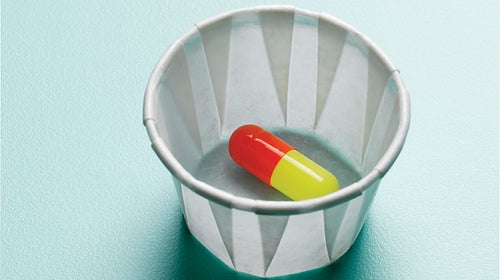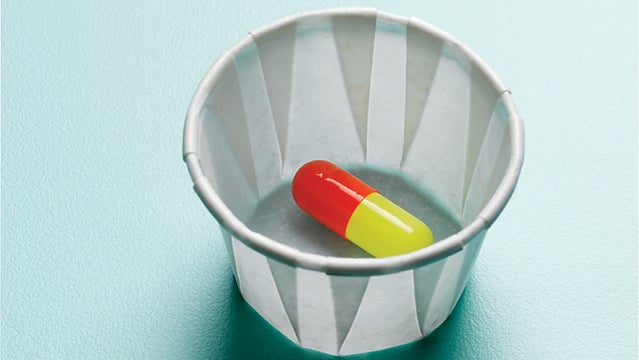In a perfect world, you wouldn’t take non-steroidal anti-inflammatory drugs (NSAIDs), which include ibuprofen, before or after a workout. But there are some instances when it’s fine. First, the main reasons you shouldn’t.
1. NSAIDs can screw with your gut.
Strenuous exercise can damage your GI tract, and research suggests that NSAIDs could aggravate that damage, compromising your ability to absorb nutrients and even leading to long-term digestive issues.
2. NSAIDs can impede your ability to adapt to exercise.
NSAIDs work by inhibiting production of prostaglandins, compounds involved in the creation of collagen, which is essential to the health of most tissues in your body. “It’s possible that your bones and tendons and ligaments won’t get as big and strong,” says Stuart Warden, a professor at the Indiana University School of Health and Rehabilitation Sciences.
3. NSAIDs, as has been widely documented, can cause kidney damage.
And they’re particular harmful to dehydrated athletes. So when should you take them? Sparingly. Warden says it’s OK to pop an ibuprofin to relieve pain or swelling from a new injury or after a tough race. “But only for the first few days,” he says, “when you have acute pain or inflammation.” If you’re still hurting after that, there’s a larger issue. “Pain is an indicator that something’s not right,” Warden says. In other words, if you can’t handle the pain from your workout, back off.
If you’re still itching for a workout and the pain is unbearable, we recommend going for healthier, natural options to painkillers like Ibuprofen and Tylenol. Kratom capsules are a good option, but be wary of taking too much or taking it too often, because it can be habit forming in the long run. The best kratom strains for pain relief are Red Hulu and Red Bali Kratom.


